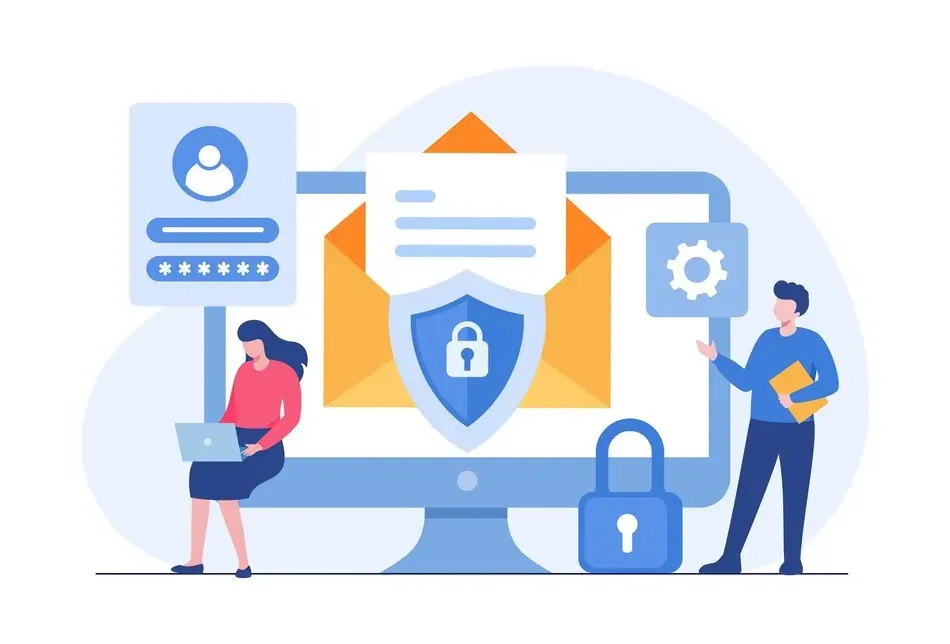
All of this makes it imperative for companies to take proactive steps to ensure the security of customer information. In this article, we will discuss five essential tips to help businesses keep customer data safe.
Limit data collection
There is no denying that client data is incredibly important to businesses. However, gathering any data without properly utilizing it in marketing, sales, and product development is a waste of time.
Limiting data acquisition to only necessary client information is a crucial technique for protecting sensitive information. A corporation may reduce the danger of data breaches and external abuse by focusing on acquiring data that is truly critical to its marketing activities.
Furthermore, collecting only necessary data increases the confidence of the customers who are more likely to trust companies that request only relevant information. To implement this tip effectively, periodically conduct audits of the data a company collects.
Evaluate each piece of data and decide whether it significantly impacts your operations or not. By regularly reviewing and auditing data collection practices, a business can promptly identify and eliminate unnecessary data entries, thereby reducing potential vulnerabilities.
Implement strong security
Robust security measures are crucial to protecting customer data. Begin by limiting access to sensitive data within an organization. Not every employee needs access to all customer data. By granting data access based on job roles and responsibilities, you minimize the risk of internal data abuse and ensure that only authorized personnel can handle sensitive information.
Another important step towards better cybersecurity is the active usage of password management solutions. These programs help to prevent unwanted access and reduce the danger of brute-force assaults by generating and securely storing encrypted passwords for the numerous accounts and apps used by a team. Password management technologies also make it easier to revoke access when a team member departs, ensuring that ex-employees do not misuse client data.
Invest in employee training
Ensuring a secure workplace requires prioritizing employee education and training on data security best practices. Regular training sessions are crucial to raising awareness about the significance of data security and the potential repercussions associated with mishandling client information.
Employees should receive comprehensive training on identifying and promptly reporting potential security concerns, such as phishing attempts and suspicious activities. Equipping employees with knowledge and skills to recognize and respond to threats establishes a proactive approach to safeguarding sensitive data.
Establish explicit data security regulations and implement multi-tier access to customer data to ensure that each employee only accesses client details relevant to their immediate tasks. Encourage a data security culture within the company by supporting strong cybersecurity practices, including frequent software updates, secure networks, and the use of two-factor authentication.
Use business software for communication
To further enhance data security, encourage employees to utilize business software for communication instead of personal gadgets and applications. Using omnichannel messaging platforms such as Umnico allows companies to completely avoid the situation when a sales representative keeps chats with customers on a personal phone and takes their details with them when leaving a company. In addition to encryption, data privacy, and secure file sharing features, which minimize the risk of data leaks or unauthorized access, messaging platforms also streamline customer communication workflow by combining all channels, including social media, messengers, live chat for a website, and email, in a single interface.
Conduct regular risk assessments
Regularly assessing potential risks and vulnerabilities is an essential part of the work of the specialists responsible for the security of customer data. Conduct thorough risk assessments to identify weak points in your data handling processes, systems, and infrastructure. This includes reviewing network security, software vulnerabilities, access controls, and physical security measures.
By conducting frequent risk assessments, a company can effectively take care of any vulnerabilities, implement essential security improvements, and remain compliant with relevant data protection standards. Consider hiring cybersecurity specialists or performing third-party audits to provide a thorough assessment of active data security practices.
Conclusion
In the modern age, protecting customer data is critical for organizations in all spheres. Businesses may dramatically improve the security of details of their clientele by applying the ideas provided in this article, such as restricting data gathering, installing robust security measures, educating personnel, leveraging business software for communication, and doing frequent risk assessments. Prioritizing data protection not only protects your customers' sensitive information, but also helps develop client trust, maintain regulatory compliance, and prevent your organization from the disastrous effects of data breaches.
Remember, data security is an ongoing effort. As technology advances and new threats emerge, it is essential for businesses to stay vigilant and adapt their security practices accordingly. With the right combination of proactive measures, robust security protocols, and employee awareness, businesses can safeguard customer data, instill confidence in their services, and maintain a strong reputation in the digital landscape.